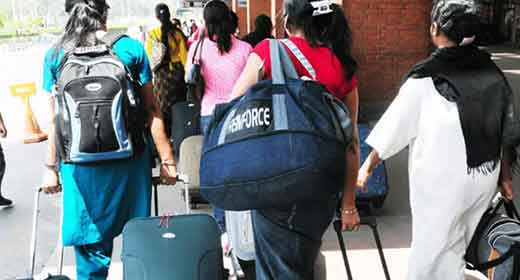KUWAIT – Another set of rules were implemented that prevents recruitment agencies to hire domestic helpers from the Philippines. The reason behind this new rule is to end the mishandling of domestic helpers in Kuwait. It is said that they are taken outside the country to work with a different employer, without even informing the Philippines Embassy.
A certain Abdrahim runs an agency for maids in Hawally. He is currently facing problems when it comes to domestic helpers being sent by their employers to other countries in the Middle East including Lebanon, Egypt and Saudi Arabia. The new rule was implemented just last month and agencies and hiring employers need to secure a certificate of approval from the Philippine Embassy. But sadly, this new rule is not materialized by all maid agencies.
A scenario wherein, a non-working mother shouldn’t be allowed to get a household help because most of them sends their maid to other countries as an exchange for money, is suggested by an employer to stop this illegal activities.
But according to Philippine Labor Attaché to Kuwait Attorney, Cesar Chavez, there are no policies to secure additional approval from the Philippine Embassy, as long as they can provide information such as the right number of family members the Filipina maid will be serving. Also, it is also advised to leave a contact information, in case the hiring employer’s family leaves for a vacation outside the country.
Kuwait has faced a slew of challenges in recent years regarding the recruitment, hiring and treatment of domestic helpers, most of whom come from impoverished countries in Asia. Last year, the parliament adopted its first ever domestic workers labor law, regulating the thriving industry. There are an estimated 660,000 domestic helpers in Kuwait and the vast majority are brought by recruitment agencies which charge fees of between KD 400 to KD 1,500 to hire a domestic worker for up to two years. Charges are typically determined by the nationality of the domestic worker with agencies charging the highest fees for Filipino domestic workers.
Under the new labor law, domestic workers are granted the right to a weekly day off, 30 days of annual paid leave, a 12-hour working day with rest, and an end-of-service benefit of one month a year at the end of the contract, among other rights. Kuwait is the first in the Arab Gulf states to pass such a law but mechanisms for implementation remain to be developed.
Source :Kuwaitimes











